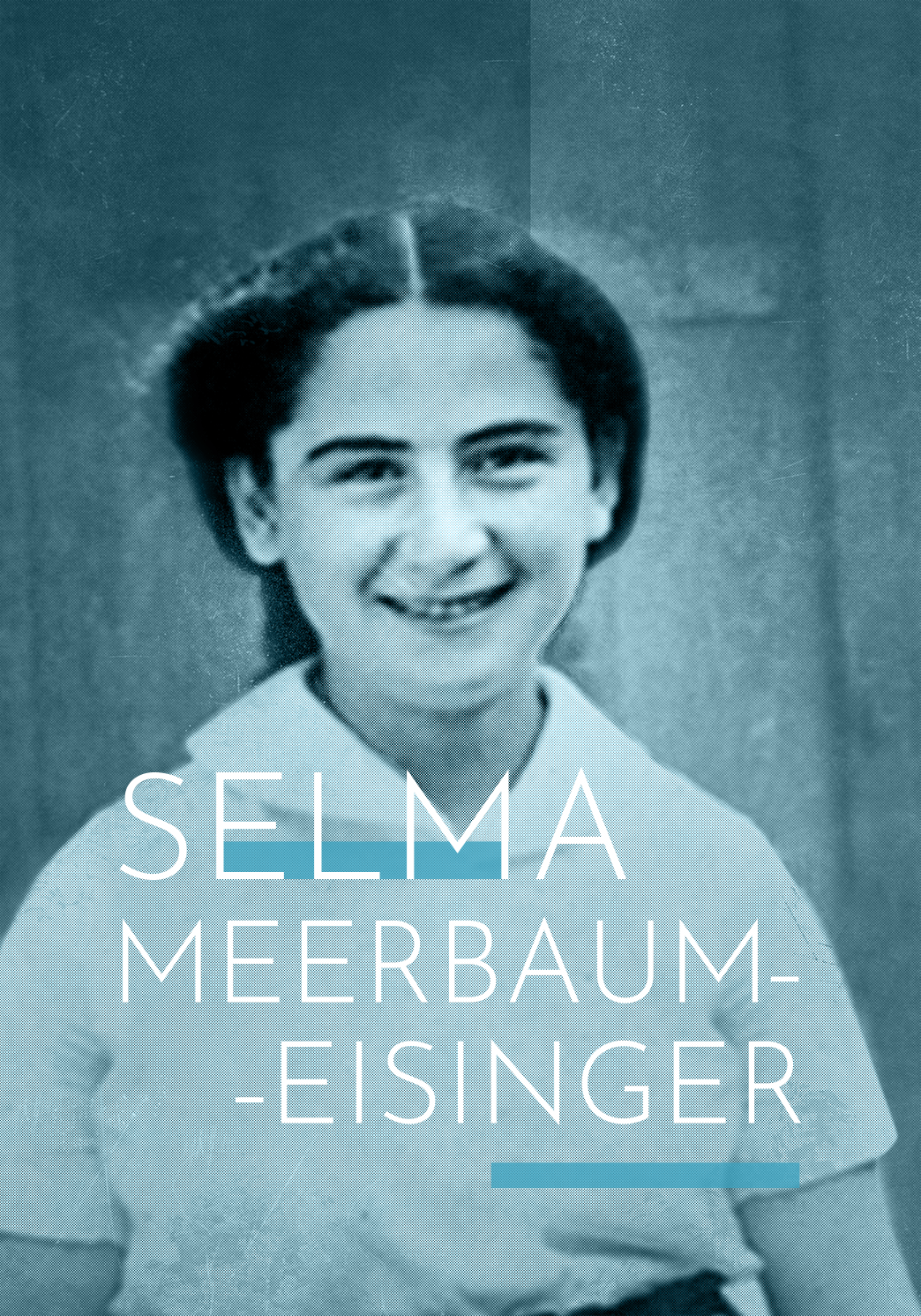5 II 1924, Chernivtsi (today’s Ukraine) — 16 XII 1942, Michajlowka labor camp
Biography
Selma Meerbaum- Eisinger was a Bukovina-born Romanian poet who wrote in German. She translated poetry from French, Romanian, and Yiddish.
She was born on 5 February 1924 in Chernivtsi, in Bukovina, (today’s Ukraine). Her father, Max Meerbaum, was a shopkeeper, and she inherited the second part of her surname, Eisinger, from her stepfather. She first became interested in literature when still a child. Her poems reflect admiration for such authors as Paul Verlaine, Rainer Maria Rilke, and Heinrich Heine. She also translated poems from Romanian, French, and Yiddish into German.
In 1940, Chernivtsi became part of the Soviet Union, but a year later, Romanian troops retook the city. This meant that she and her family were relocated to the ghetto. From then on, she was assigned to hard labor units in various camps. She died of typhus on 16 December 1942 in the Mikhailovka labor camp.
Her body of work consists of 57 poems, all written in pencil and hand-bound, were rescued for future readers by friends who brought them to Israel. Temporarily forgotten, they were re-discovered and published many years later. Selma Meerbaum- Eisinger’s poetry, along with the poetry of Rose Ausländer and Paul Celan, today form an important part of the cultural heritage of the German Jews of Bukovina.
Selma Meerbaum- Eisinger was a Bukovina-born Romanian poet who wrote in German. She translated poetry from French, Romanian, and Yiddish.
She was born on 5 February 1924 in Chernivtsi, in Bukovina, (today’s Ukraine). Her father, Max Meerbaum, was a shopkeeper, and she inherited the second part of her surname, Eisinger, from her stepfather. She first became interested in literature when still a child. Her poems reflect admiration for such authors as Paul Verlaine, Rainer Maria Rilke, and Heinrich Heine. She also translated poems from Romanian, French, and Yiddish into German.
In 1940, Chernivtsi became part of the Soviet Union, but a year later, Romanian troops retook the city. This meant that she and her family were relocated to the ghetto. From then on, she was assigned to hard labor units in various camps. She died of typhus on 16 December 1942 in the Mikhailovka labor camp.
Her body of work consists of 57 poems, all written in pencil and hand-bound, were rescued for future readers by friends who brought them to Israel. Temporarily forgotten, they were re-discovered and published many years later. Selma Meerbaum- Eisinger’s poetry, along with the poetry of Rose Ausländer and Paul Celan, today form an important part of the cultural heritage of the German Jews of Bukovina.
Tragedy
translated from German by Piotr Zadworny
This is the most difficult: to give yourself
and see that nobody needs you,
to give it all and think
that you will disappear into nothing like smoke.
23.12.1941
[added with a red pen:]
I didn’t have the time to finish.
It’s a shame you didn’t take my advice.
Regards.
Selma.
The copyright owner of Selma Meerbaum-Eisinger’s portrait is Yad Vashem.
Selma Meerbaum Eizinger, Yad Vashem, Hall of Names photos, Archival Signature:15000/14229078

